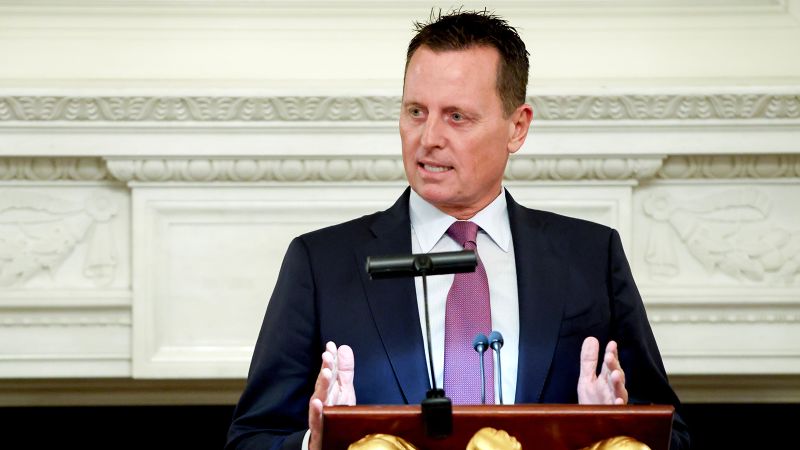In a significant development amidst an ongoing antitrust engagement with the U.S. Justice Department, Live Nation, a globally recognized entertainment powerhouse, has appointed Richard Grenell, a close advisor to former President Donald Trump, to its board of directors. This strategic move has raised eyebrows, particularly considering the mounting legal challenges facing the company, which owns the prominent ticketing service Ticketmaster.
Grenell, who notably served as Trump’s presidential envoy for special missions and recently became the president of the Kennedy Center, was added to the Live Nation board on a Tuesday, a decision that instantly drew attention and sparked debate about its implications. His role within one of the country’s most influential arts institutions and his longstanding connection with Trump positions him uniquely to potentially influence dealings between Live Nation and the government.
The backdrop of this appointment is critical. Live Nation is currently embroiled in a substantial lawsuit initiated by the U.S. government, supported by around 30 state and district attorneys general. These litigations allege that Live Nation has misused its significant market dominance in the concert industry and argue for the corporation’s breakup to promote competition. This legal fight underscores the precarious position the company finds itself in, prompting many to speculate on the motivations behind Grenell’s appointment.
Critics of the appointment swiftly made connections between Grenell joining the board and Live Nation’s desire to navigate the complex antitrust allegations it is currently facing. Matt Stoller, a prominent antitrust advocate and research director at the American Economic Liberties Project, voiced this skepticism publicly, claiming that the appointment was an attempt by Ticketmaster to shield itself from the severe consequences tied to the government’s lawsuit. This sentiment illuminates the broader discourse surrounding corporate strategies in dealing with legal challenges and the dynamics of influence that can arise from political connections.
In understanding the intent behind this board appointment, it is essential to recognize the transactional nature attributed to Trump’s politics. Under his administration, a pattern emerged in which companies sought to forge close relationships with the Trump circle, often through various means—including making corporate donations, participating in high-profile photo ops with the president, or, as seen with Live Nation, board appointments. Observers note that this creates an environment where political affiliations can play a critical role in corporate strategy, especially when navigating regulatory scrutiny.
Live Nation’s official stance, however, emphasizes that Grenell’s extensive career experience is expected to lend support to the company’s mission to enhance the live music landscape while also advocating for necessary reforms within the industry that should ultimately benefit both fans and artists alike. This balancing act between leveraging political connections and pursuing genuine industry reforms reflects the complexity of their operational landscape amidst legal challenges.
Interestingly, while Grenell does have strong ties within both political and entertainment sectors, his direct experience in the entertainment industry is limited. His background mainly encompasses multiple roles in diplomacy and intelligence during Trump’s initial term in office, combined with his time as a commentator for media outlets like Fox News and Newsmax. His choice might reflect an intent to navigate the entertainment realm more through political savvy than through industry knowledge per se.
Moreover, Live Nation is also contending with a separate criminal investigation by the Justice Department regarding its handling of concert cancellations early in the COVID-19 pandemic, which adds another layer of concern as the company prepares for potential legal battles on multiple fronts. Following reports of this probe, Live Nation publicly denied any wrongdoing and reaffirmed its commitment to a vigorous defense should any charges be pursued.
In summary, Richard Grenell’s recent appointment to Live Nation’s board highlights the intricate interplay of politics and business, particularly as the company finds itself ensnared in antitrust legalities. The strategic positioning of Grenell within the board is indicative of Live Nation’s attempt at mitigating risks and navigating the challenges that lie ahead, driven by both legal imperatives and the multifaceted nature of corporate governance in volatile environments.



